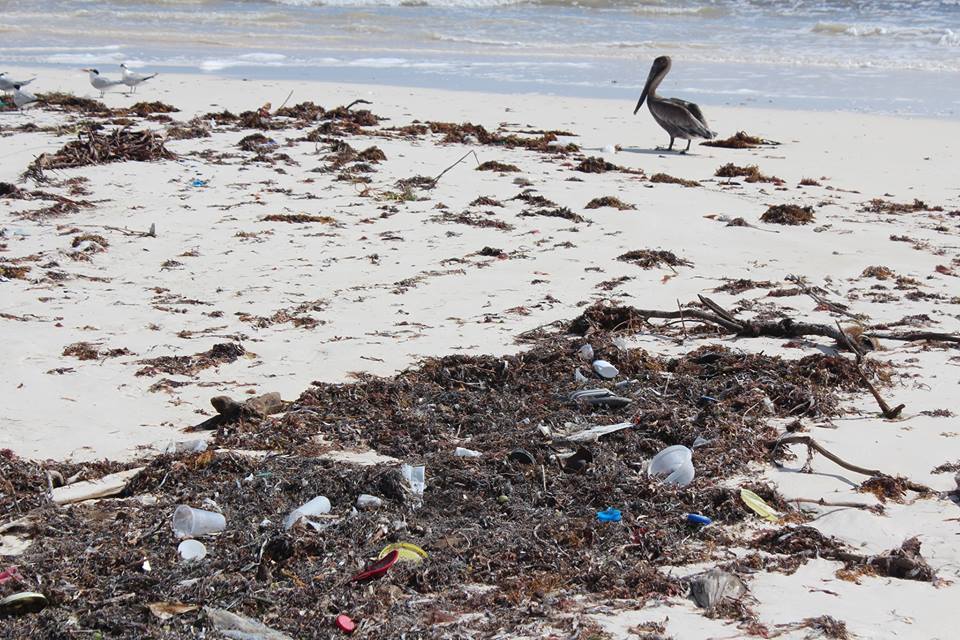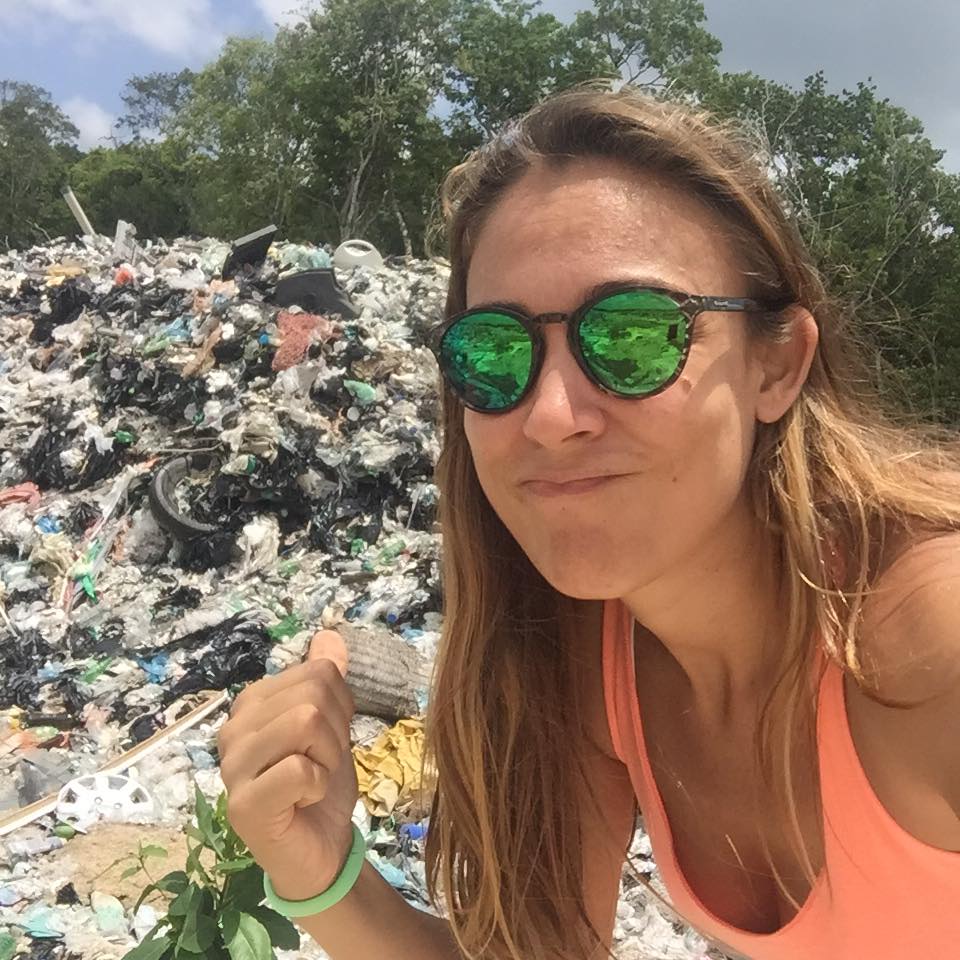My name is Tamara Adame and I’m a dive instructor in Mexico. I consider myself a true mermaid against plastic — battling disposable plastic within the dive industry is a tough job, but the fish and turtles like it! Every day I witness how single-use plastic is trashing the beach paradise I live in and I’m determined to do something about it. Every scuba diver enjoys the ocean, so why not start protecting it today?

I worked in communications for 7 years before deciding that my real passion was scuba diving and I wanted a career change, or, as I gently put it: I wanted to retire at age 30 and get a beach life, salty hair, and barefoot living. Little did I know that beaches are polluted, that plastics have invaded our seas, our food, and even the salt in my hair in the shape of tiny plastic bits. The sand I walk on is mixed with an indescribable mix of strings, pieces, and particles of plastic that are impossible to pick, gather or clean. The image of a perfect beach life disappeared when I got involved in protecting the environment I once thought was a paradise close to heaven.

The image of a perfect beach life disappeared when Tamara saw the amount of plastic trash that has invaded her home. ©Karen Fuentes
Being a diver based in Mexico, I started observing the frequency with which we are offered disposable plastic items, water bottles or plastic bags. For every tank of air we use, at the very least, there is one plastic bottle that goes to the landfill. Recycling doesn’t help either —only 12% of plastic items are recycled in Mexico, so realizing that I am actively contributing to polluting my workplace started bothering me. That’s why I call myself a mermaid against plastic!

The author, surrounded by trash in her comminity. ©Tamara Adame
In today’s world, there is no such thing as an impact-free activity. We pollute no matter what and when it comes to plastic, we use equipment made of it, we pack our belongings in it, and a great majority of the tools we use are plastic.
Yet discovering that most divers and instructors do not make a move from single-use plastic items to more environmentally friendly options started getting on my nerves. I started refusing water during dive trips and taking my own reusable bottle. I wanted to set a good example to the people in our industry by displaying good habits and advocating for ways to change the world, at least within the tiny sub-universe that is my home, my work, and my divers.
However, businesses can have a massive impact and they have to be the ones taking my little actions to a bigger and broader scope. if I ever wanted to stop being simply the hippie who cares about plastic pollution, then I had to reach out to companies.
Businesses care about 2 things: Money, and how easy it is to conduct their business. If you come up with solutions that make a business easier to execute, and/or reduce costs, you will be listened to. However, in the diving industry, I came across another fact: tourists are scared of drinking water in Mexico. So to address our plastic problem, I also had to shut down the myths about drinking water that came from containers other than a sealed plastic bottle.
We went on to conduct a survey among 31 dive and snorkel businesses in the area of Quintana Roo, better known as Riviera Maya. Here’s what I found out: Turns out that only 16% of businesses have switched from disposable plastic to some kind of less polluting method, being reusable cups, big water containers or refill stations. That means 26 businesses of all sizes responded they use disposable plastic water bottles daily. Some of them have tried switching but they have faced customer complains: “it’s not hygienic”, “it may be tap water”, “it’s low-quality service”. So I learned we associate good service with items we can use and dispose of, and businesses aren’t communicating why it is critical that we avoid single-use plastic, and how important these changes are for the environment.

Single-use plastic is choking our oceans. ©Armando Gasse
We discovered with the survey that people in the dive business are aware of the plastic pollution problem but don’t necessarily have the tools, time, and resources to make a change that makes sense. So what also needs to happen is that these changes must come from the top — multinational corporations like Coca-Cola and Nestle need to be held responsible and switch their single-use packaging to more sustainable options, but we also need to acknowledge our responsibility when we choose those products. Governments need to put pressure on the industry. As a community, we can establish plastic-free zones where disposable plastics are not offered anymore and this can strike a cord with government officials to start influencing public policy and law-making regarding waste.
Opting for a plastic-free dive shop can be important enough in the battle for the oceans, and I invite you to inquire with dive businesses about their disposable plastic policies. Let them know that divers and clients in general pay attention to these little details, and customer service is not affected when reusable items are offered — quite the contrary! Support any business that is going the extra mile and reducing the waste you would have otherwise generated, become a mermaid (or Merman!) against plastic. Pay it forward to Planet Water in your name — now that’s good ocean karma!
Tamara Adame was born in Mexico and has been a diver for over 20 years. She majored in Communications and has always been a self-taught naturalist. She lived and worked in Belgium for 10 years before finding her way back to the Mexican Caribbean where she has taught scuba diving since 2014.
